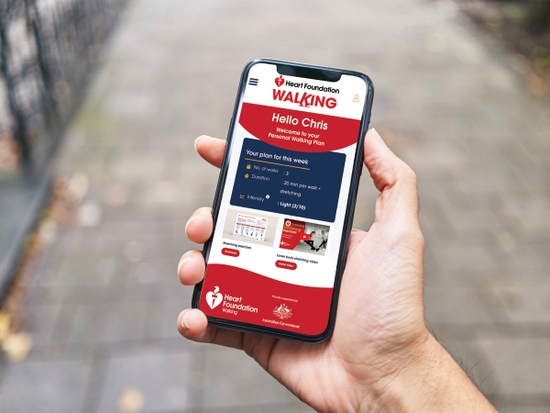Heart failure resources for patients
Educate your patients on everything they need to know about heart failure and managing their condition
Key takeaways
- As health professionals, you play an important role in supporting your patients with heart failure to manage their condition.
- We have developed a range of resources for your patients to help them understand their condition and what they can do to live well.
Heart failure is a complex clinical syndrome with typical symptoms and signs that generally occur on exertion but can also occur at rest (particularly when lying down). Heart failure occurs secondary to an abnormality of cardiac structure or function, and impairs the ability of the heart to pump blood around the body.
We have developed resources for your patients including our Living Well with Heart Failure booklet and our heart failure video series, which has been translated into multiple languages. We have also created resources for patients in collaboration with NPS MedicineWise.
Video series: Living well with heart failure
This series of short videos helps patients better understand a range of topics related to heart failure such as:
- What is heart failure
- Medicines for heart failure
- What to do when you feel sick
- Mental and emotional health
- How does heart failure make you feel
- Things to do to make you feel better
- Heart failure and physical activity
The Living well with heart failure video series is available in multiple languages including Arabic, Greek, Italian, Vietnamese and Mandarin.
Booklet: Living Well with Heart Failure
The Living Well with Heart Failure booklet contains information for patients about what heart failure is, how it feels, what to do if they are feeling sick, and an emergency plan in case symptoms get worse.
Download a copy of the booklet
You may like to use some plans from the Living Well with Heart Failure booklet when seeing a patient with heart failure.
My fluid plan. Fluid intake plays a role in heart failure management, but it can be hard for some patients to keep track. Patients should be advised if they put weight on quickly (more than 2kg in two days), they should speak to their doctor, nurse or health worker.
Things you can do to feel better. This list summarises the steps patients can take to manage their heart failure and identifies when they need to take action if they are not feeling well.
My medicines. Fill out the table with your patient so they can remember when to take their medicines, what their medicines are for, and how they should take them.
Things to do every day. This action plan summarises the key things patients can do each day to feel well.
My emergency plan. This action plan encourages patients to call their doctor, nurse or health worker within 24 hours if they experience certain symptoms.
Warning signs of a heart attack. This flow chart helps patients to recognise the symptoms of a heart attack and know when to call Triple Zero (000).
Exercise and cardiac rehabilitation
Exercise is recommended in our heart failure clinical guidelines as an effective intervention for patients with stable chronic heart failure; particularly those with reduced left ventricular ejection fraction.
Evidence has found regular moderate-intensity exercise can improve physical health and quality of life and can decrease hospitalisation (GRADE Recommendation strength: strong. Quality of evidence: high). Patients with heart failure can begin exercising as soon as they are clinically stable.
Exercise training is a component of cardiac rehabilitation programs. Patients with a new diagnosis of heart failure, or if they experience a change in their heart failure condition, should be referred to cardiac rehabilitation. See our cardiac services directory to find a cardiac rehabilitation service for your patient. You can also provide them with our cardiac rehabilitation booklet.
You can encourage patients to be more physically active:
Physical activity action plan. This action plan helps patients determine how ready they are to be physically active and put a plan into practice.
Get started with more physical activity. This webpage provides information about being physically active and finding a Heart Foundation walking group.
Completed over six weeks, the Heart Foundation’s free personal walking plans can be tailored based on a person’s current level of activity.
NPS MedicineWise Collaboration
NPS MedicineWise, in collaboration with the Heart Foundation, has also developed a range of heart failure resources for patients. These include an action plan to help patients identify the most important parts of their heart failure self-management, and a fact sheet providing information about heart failure, what it means for daily life, and five questions to ask GPs. There are also resources for Aboriginal and Torres Strait Islander patients.
You can also tell your patients about the free MedicineWise: Manage Medicine app which they can use to keep track of their medicines and access important health information. The app can be downloaded from can be downloaded from Manage Medicine - Apple App Store and Manage Medicine - Google Play Store.
You might also be interested in...

Heart failure clinical guidelines
Guidelines for the prevention, detection and management of heart failure in Australia, for health professionals including general practitioners, cardiologists, cardiothoracic surgeons, nurses, pharmacists, and other allied health professionals.
.jpg?width=560&height=auto&format=pjpg&auto=webp)
Heart failure tools and resources
Resources and tools for healthcare professionals to support the management of patients with heart failure.

Personal Walking Plans
Get more active with a free six-week plan
Last updated04 February 2025